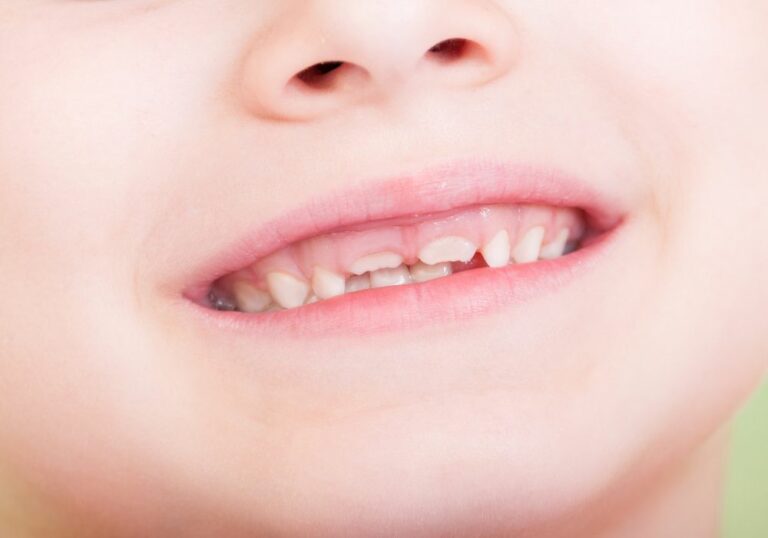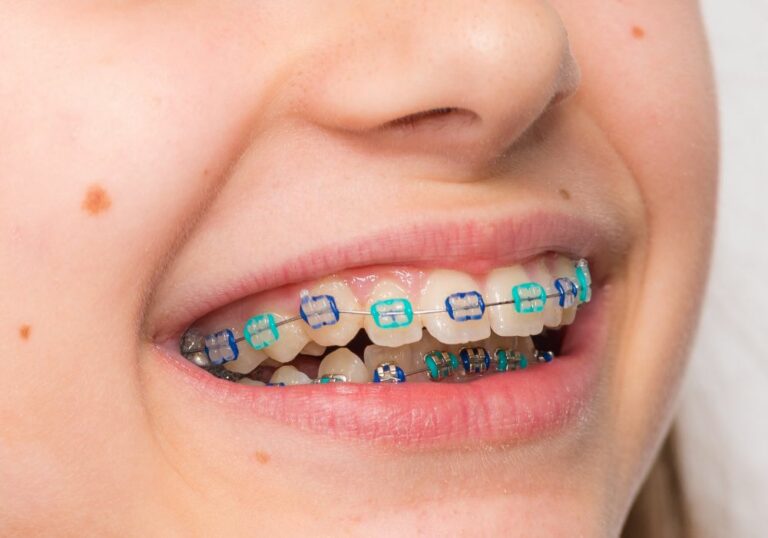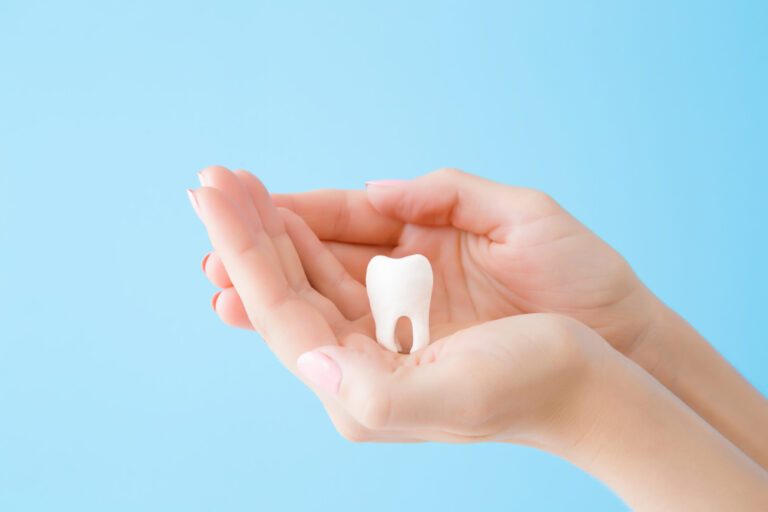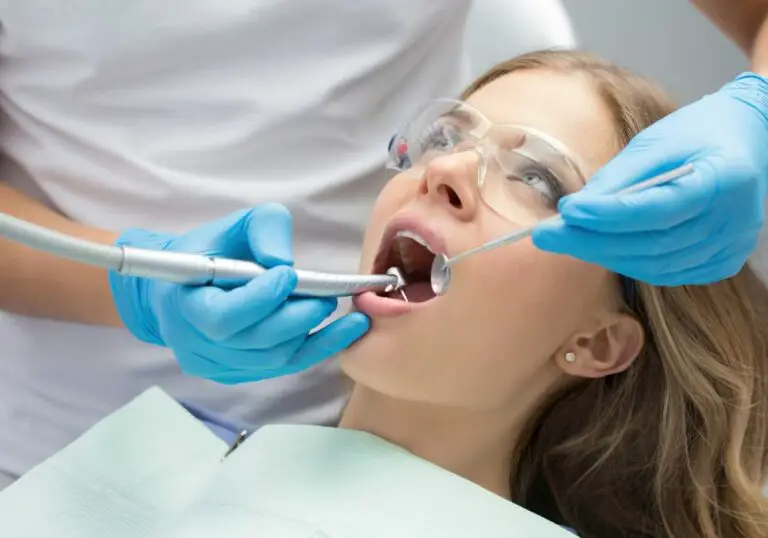Understanding tooth sensitivity in the lower teeth
Experiencing sensitivity or pain in your bottom teeth can be frustrating and uncomfortable. But what causes this? There are a few potential reasons why your lower teeth may be bothering you.
Exposure of dentin
Enamel is the hard, outer layer of the tooth. Underneath enamel is a softer layer called dentin. Dentin contains thousands of tiny tubules leading to the innermost part of the tooth.
When enamel erodes or experiences abrasion, it can expose the dentin and its tubules. This leaves the nerves in your teeth more vulnerable to stimuli that normally wouldn’t cause pain or discomfort.
Over time, enamel can wear away through:
- Acid erosion from frequent consumption of acidic foods and drinks like citrus, carbonated beverages, wine, and vinegar
- Tooth grinding or aggressive brushing
- Gum recession, which causes the gum line to pull away from the teeth
Any of these factors can lead to sensitive lower teeth if more enamel is lost near the gumline of the bottom teeth.
Dental cavities
Cavities form when plaque bacteria on the teeth produce acids that break down enamel. If a cavity extends deep enough, it can reach the inner dentin layer and cause sensitivity as well as tooth decay.
Cavities are more likely to occur in teeth that are difficult to clean. The molars towards the back of the mouth can be hard to reach thoroughly with a toothbrush. Food particles may get trapped in crevices or between closely spaced teeth, promoting bacterial growth. Cavities starting in between teeth often spread to the biting surfaces or underneath gum margins.
Cracked teeth
Cracks in a tooth may let hot, cold, or acidic foods and liquids seep in and irritate the dentin and pulp. Cracks are also pathways for bacteria to infiltrate deeper layers of the tooth.
Cracks can form from:
- Natural flaws or weakness in the tooth structure
- A direct blow to the mouth
- Habits like teeth grinding or nail biting
- Wear and tear over time
Cracks often start small but worsen over time. Lower teeth may be more prone to cracking or chipping due to the pressure placed on them during chewing.
Dental procedures
It’s common to experience some sensitivity after certain dental treatments like:
- Tooth extractions – After an extraction, the nerves may be more exposed.
- Dental fillings – Irritation can occur if the filling material contacts the inner pulp layer.
- Root canals – Normal sensitivity may last for some time as the tooth heals.
- Dental crowns or bridges – Minor irritation is possible after placement.
Notify your dentist if sensitivity persists beyond the normal healing period after dental work.
Determining the cause of lower tooth discomfort

If your bottom teeth are bothering you, take note of any patterns to help identify potential causes:
- Does the pain occur with hot or cold foods/drinks? Temperature sensitivity usually indicates exposed dentin, cavities, or cracked teeth.
- Is the pain sharp or lingering? Sharp pain that stops abruptly may signal a crack or cavity. A dull, throbbing ache could mean pulp inflammation.
- Does it hurt when you release pressure or bite down? Pain when releasing pressure points to a cracked tooth. Discomfort when biting down can be due to cavities, cracked cusps, etc.
- Is there discomfort around fillings or crowns? This suggests that dental work may be irritating the tooth.
- Does it hurt constantly? Constant, unprovoked pain could indicate an abscess, infection, or other dental issue needing urgent care.
- Are gums red, swollen, or bleeding? Signs of gum disease can cause sensitivity as gum recession exposes more of the root surface.
Keeping track of when and how bottom tooth pain occurs will help your dentist diagnose the exact problem. Be prepared to describe:
- Which specific teeth are involved
- Pain triggers and relievers
- Sudden vs gradual onset
- How long symptoms have lasted
Treating sensitive lower teeth
The treatment depends on the cause of discomfort:
For exposed dentin:
- Use a soft-bristled toothbrush and avoid aggressive brushing
- Rinse mouth after acidic foods and beverages
- Have dentist apply fluoride varnish to protect dentin
- Try over-the-counter toothpastes for sensitive teeth
For cavities:
- Apply fluoride toothpaste after meals and at bedtime
- Rinse mouth with baking soda and water mixture to help neutralize acids
- Have dentist fill any cavities detected
For cracked teeth:
- Avoid chewing hard foods on the affected side
- Wear a dental night guard if cracking is due to grinding
- See dentist promptly for evaluation; a cracked tooth may require a crown or extraction if the crack extends below gum line
For post-dental work sensitivity:
- Rinse with warm salt water to promote healing
- Take over-the-counter pain medication as recommended by dentist
- See dentist if sensitivity persists more than 1-2 weeks after procedure
For gum recession:
- Improve oral hygiene to control bacteria causing recession
- Have dentist evaluate for gum grafting if significant recession present
- Use prescription strength fluoride toothpaste
- Limit acidic foods and abrasive brushing
Catching and treating issues early is important to prevent complications and relieve discomfort. Seek dental care right away if your teeth are extremely sensitive or you have symptoms of infection like fever, swelling, or pus.
When to see a dentist about lower tooth sensitivity

Make an appointment with your dentist if:
- Pain or sensitivity persists more than 2 weeks or keeps returning
- Symptoms seem to be worsening
- You have signs of infection like swelling, pus, or fever
- You notice damage like chips, cracks, or dark spots on your teeth
- You woke up with unexplained throbbing toothache
- Gum recession is exposing more of your tooth roots
- You experience pain or discomfort after dental treatment
Dentists have specialized tools and x-rays to detect problems not always visible to the eye. They can pinpoint the cause of sensitivity and provide appropriate treatment. For severe tooth pain that cannot wait for a dental appointment, an emergency room or urgent care clinic can provide pain relief and antibiotics if needed.
Let your dentist know right away if over-the-counter remedies aren’t solving the problem. Ignoring persistent tooth sensitivity may allow minor issues to progress to more complex dental work or tooth loss.
When to see a medical doctor about tooth sensitivity
In some cases, your primary care physician or a specialist should also be consulted if your dental symptoms could be related to other medical conditions. See your physician promptly if tooth sensitivity is accompanied by:
- Numbness or pain in your tongue, lips, gums, or face
- Sore throat or hoarse voice
- Jaw pain or stiffness
- Swelling/lumps in mouth or neck
- Weight loss, fatigue
- Earache
These symptoms may indicate infections, neuralgia, TMJ dysfunction, oral cancer, or other conditions that require coordination between medical and dental providers. Your physician can order diagnostic tests and imaging to identify or rule out various disorders.
Preventing and managing tooth sensitivity
You can help minimize sensitivity and prevent certain triggers with good oral care:
- Brush gently with a soft or extra-soft bristle toothbrush and avoid abrasive scrubbing
- Floss daily to remove plaque between teeth
- Use fluoride toothpaste to strengthen enamel
- Apply fluoride varnish at dental visits
- Rinse with baking soda and water after acidic foods and drinks
- Limit acidic and sugary foods/drinks
- Drink water and chew sugar-free gum to increase saliva flow
- Don’t grind teeth; get fitted for a bite guard if you have bruxism
- Get dental cleanings every 6 months
Addressing sensitivity early often allows for more conservative treatments like varnishes, toothpastes, or simple fillings. Left untreated, minor issues can progress to more complex root canals, crowns, or tooth extractions. But staying ahead of problems through regular dental visits and prompt care for any discomfort can help your teeth remain healthy and pain-free.
Frequently Asked Questions
Why are my bottom teeth more sensitive than my top teeth?
The upper teeth are less prone to sensitivity issues for a few reasons:
- Less exposed roots: Upper teeth don’t show as much recession since gravity causes the most gum recession to occur in the lower jaw.
- Thicker gum tissue and bone: The palate provides more protection over the upper tooth roots.
- Less pressure: Lower teeth bear the brunt of chewing forces, making them more vulnerable to cracks and chipping.
If I whiten my teeth, will it make them more sensitive?
Tooth whitening products can temporarily increase sensitivity by irritating the dentin layer under the enamel. Tray whitening methods cause more sensitivity than strips or pastes. Using a fluoride paste before and after whitening can help minimize discomfort. Avoid whitening if you already have sensitivity issues.
Why do my teeth hurt when I drink something cold and then warm?
Rapid temperature changes can cause fluid shifts in the microscopic tubules of dentin, stimulating nerve sensitivity. The discomfort is often brief as your teeth quickly adjust to the new temperature. Temperature sensitivity typically signals exposed dentin. Avoiding extreme hot and cold foods/drinks can help reduce irritation.
Is sensitive toothpaste better than regular toothpaste?
Yes, toothpastes marketed for sensitive teeth can provide more relief. They contain active ingredients like potassium nitrate, arginine, or strontium acetate to block pain signals. Using a sensitivity paste daily, along with brushing gently and limiting acidic foods, helps manage dentin exposure. Consult your dentist for other products too like prescription strength toothpaste or fluoride varnish.
If I ignore sensitive teeth, could they get worse?
Yes, it’s important not to ignore chronic tooth sensitivity as it can allow minor problems to progress. What starts as simple sensitivity could lead to cavities, cracks, gum recession, or pulp inflammation needing more extensive treatment. See your dentist promptly if sensitivity persists for more than 1-2 weeks to determine the cause and proper solution. Catching issues early is key to prevent complications.
When to Seek Help
- Persistent sensitivity beyond 2 weeks, keeps recurring or worsening
- Pain with temperature changes
- Sharp pain when biting or releasing pressure
- Discomfort around dental work sites
- Unexplained swelling, fever, pus
- Visible chips, cracks, or cavities
Seeing a dentist promptly for evaluation and treatment can help resolve sensitivity issues before they require complex procedures. Don’t delay care for unexplained tooth pain or discomfort.







